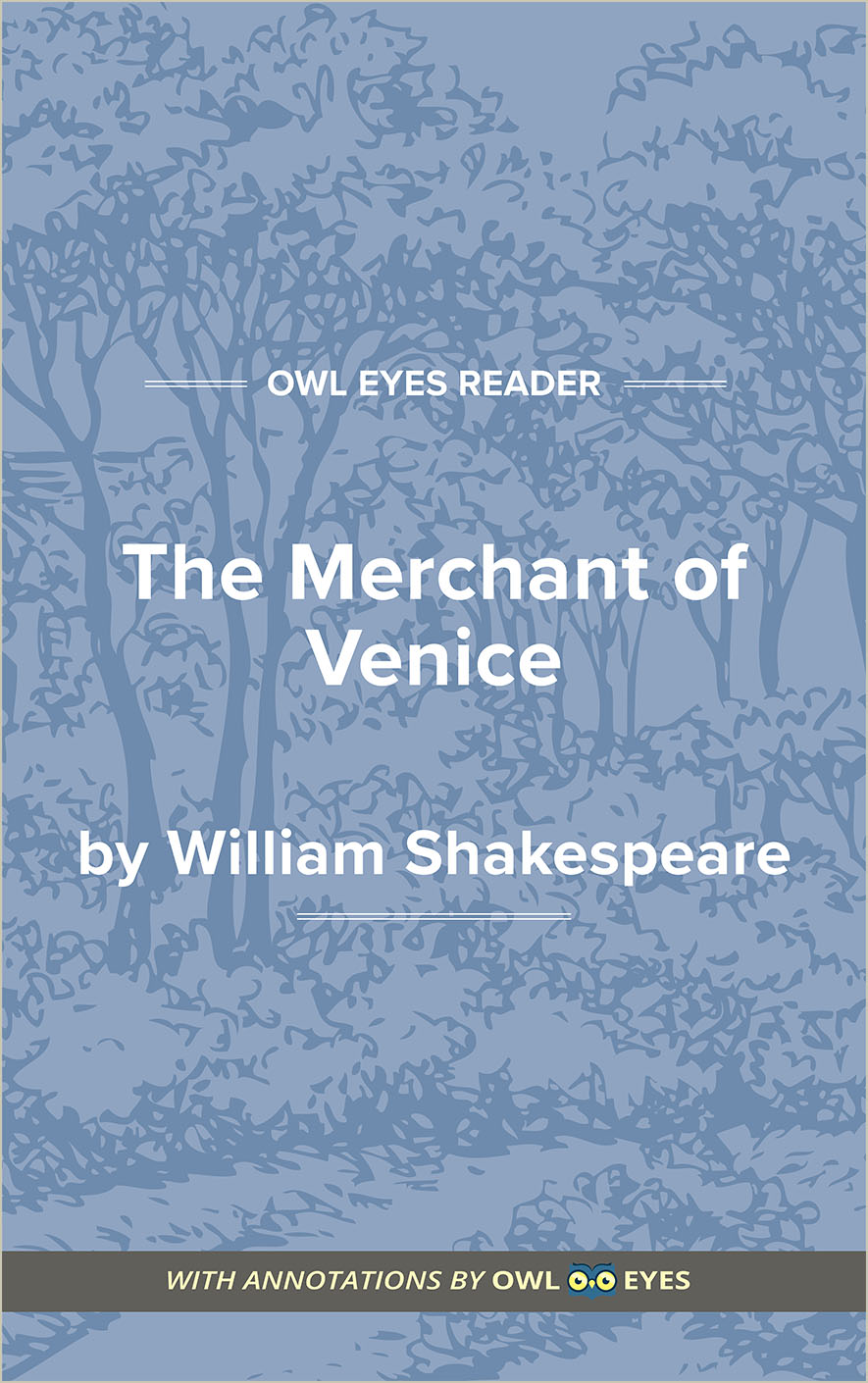Study Guide
Analysis Pages
Christian Themes
The principal Christian theme of mercy as preferable to, or tempering, justice pervades this play. In Act IV, scene 1, Portia makes an argument for mercy against Shylock’s plea for his bond.
The quality of mercy is not strain’dIt droppeth as the gentle rain from heavenUpon the place beneath; it is twice blestIt blesseth him that gives and him that takes’Tis mightiest in the mighty; it becomesThe throned monarch better than his crownHis sceptre shows the force of temporal powerThe attribute to awe and majestyWherein dost sit the dread and fear of kingsBut mercy is above this sceptred swayIt is enthroned in the hearts of kingsIt is an attribute to God himselfAnd earthly power dost then show likest God’sWhen mercy seasons justice.
This argument, one of the most well-known passages in Shakespeare’s works, underscores the conflict between the vengeful Law of Talion and the more merciful Golden Rule. Indeed, a central conflict between the old dispensation of Judaism and the new covenant announced by Jesus of Nazareth rests on the Christian doctrine that salvation comes through the mercy of God (grace) rather than through justice. As the trial between Shylock and Antonio concludes, Shylock becomes the victim of his own desire for justice while the Duke of Venice and Antonio both show him some degree of mercy.
From a Christian perspective, Shylock’s conversion to Christianity would allow him the possibility of salvation. That Shylock does not share this religious view seems insignificant to...
(The entire page is 374 words.)
Owl Eyes subscribers get unlimited access to our expert annotations, analyses, and study guides on your favorite texts. Master the classics for less than $5/month!

